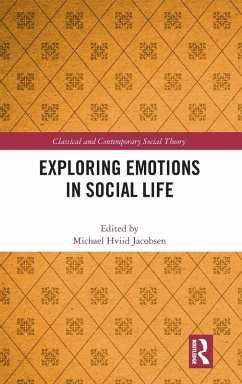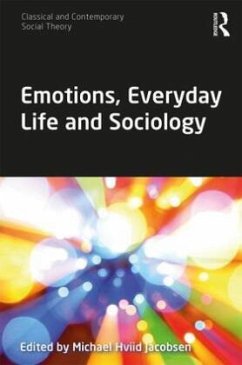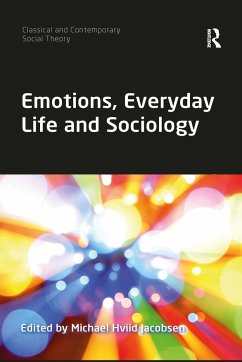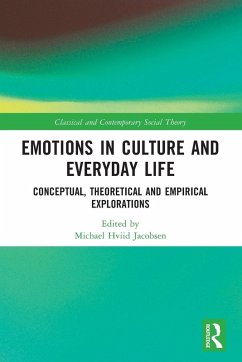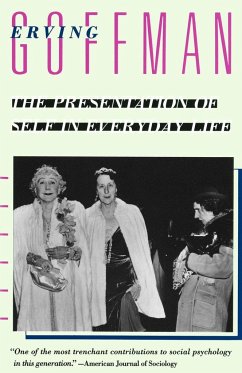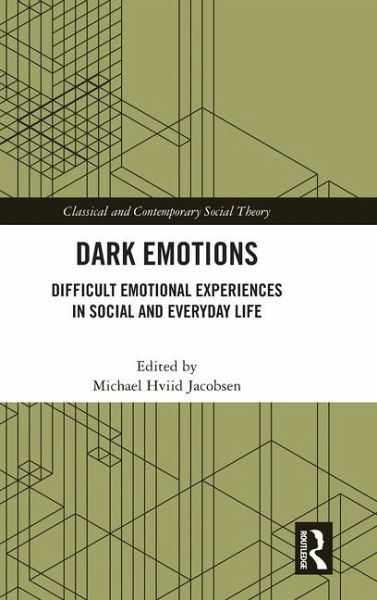
Dark Emotions
Difficult Emotional Experiences in Social and Everyday Life
Herausgegeben: Jacobsen, Michael Hviid
Versandkostenfrei!
Versandfertig in 6-10 Tagen
154,99 €
inkl. MwSt.

PAYBACK Punkte
77 °P sammeln!
Dark Emotions is a book about a range of emotional experiences that are often regarded or characterized as 'negative', 'disturbing' or 'dark' as contrasted with emotions that are 'positive', 'pleasant' or 'light'.Each chapter in the book is devoted to introducing different 'dark emotions' such as disappointment, betrayal, worry, regret, resentment and alienation and seeks to show - through conceptual, theoretical and empirical examples - how these emotions influence peoples' lives and their relations to self, others and society. The book thus provides an overview of some dark emotions that are...
Dark Emotions is a book about a range of emotional experiences that are often regarded or characterized as 'negative', 'disturbing' or 'dark' as contrasted with emotions that are 'positive', 'pleasant' or 'light'.
Each chapter in the book is devoted to introducing different 'dark emotions' such as disappointment, betrayal, worry, regret, resentment and alienation and seeks to show - through conceptual, theoretical and empirical examples - how these emotions influence peoples' lives and their relations to self, others and society. The book thus provides an overview of some dark emotions that are recognizable in our everyday lives and culture. It contains accessible introductions and relevant theoretical and empirical research on 12 different kinds of 'dark emotions'. The chapters are highly useful for teaching sessions and research contexts. Additionally, they provide extensive lists of references for further reading.
The book will be particularly useful for students or scholars with an interest in emotion research or related areas, and the book may inspire further investigation of the often- overlooked emotions presented in this volume.
Each chapter in the book is devoted to introducing different 'dark emotions' such as disappointment, betrayal, worry, regret, resentment and alienation and seeks to show - through conceptual, theoretical and empirical examples - how these emotions influence peoples' lives and their relations to self, others and society. The book thus provides an overview of some dark emotions that are recognizable in our everyday lives and culture. It contains accessible introductions and relevant theoretical and empirical research on 12 different kinds of 'dark emotions'. The chapters are highly useful for teaching sessions and research contexts. Additionally, they provide extensive lists of references for further reading.
The book will be particularly useful for students or scholars with an interest in emotion research or related areas, and the book may inspire further investigation of the often- overlooked emotions presented in this volume.





